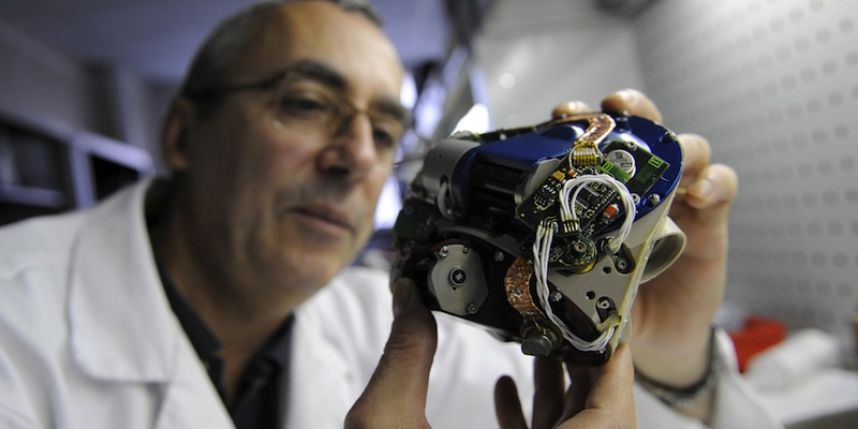
After rumors began to circulate last week that Carmat, the medical technology startup building the first fully autonomous artificial heart, had performed a 2nd operation on a patient in the Nantes, the company confirmed the information this week, stating that the operation appeared successful thus far. Little is known about the patient’s identity at the time; however, the requirements of the procedure are that the patient have impending terminal heart failure. The previous patient, 76 year-old Claude Dany, had a life expectancy of less than week.
Despite living 74 days beyond the operation, the death of Carmat’s first of four required test patients (before extend experiments can begin) posed a big problem for Carmat, as the cause of death was determined to be a problem associated with Carmat’s heart. This second surgery would suggest that Carmat is confident they have identified the source of the issue and resolved it. Their hope with the first patient was that he live at least 30 days, so it is not unreasonable to expect that the next patient live at least 100 days beyond the surgery (save an unrelated cause of death).
France’s medical device industry is quite expansive, due largely to France’s welcoming healthcare industry, as we discovered earlier this year in an interview with Sofinnova senior associate Katie Ellias. I also spoke this past June with Carmat’s chairman at LFTC, amidst much of the controversy over the cause of death of their first patient – he seemed calm and collected, and he spoke passionately of his work.
One of the most amazing aspects of Carmat is not just the life-saving aspect, but the job-creation side. Currently, the lack of supply of organ donor hearts means that the surgeon community can only support so many heart surgeons, like Carmat Co-founder Alain Carpentier; however, if artificial hearts could be manufactured in the millions, then not only could the tens of thousands of patients on standby for a heart transplant at any given moment receive said transplant, but the need for heart surgeons would increase 100-fold.
Did you like it? 4.7/5 (20)

